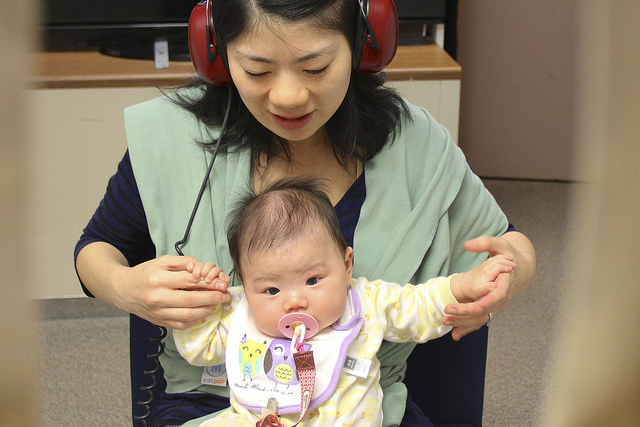HESP Researchers Create BITTSy
October 23, 2014
Maryland Language Science Center

The Behavioral Infant and Toddler Testing System (BITTSy) is a new suite of software tools that will speed the international growth of research on the earliest stages of language development. The project is led by Rochelle Newman, Professor and Chair in the Department of Hearing and Speech Sciences, and Associate Director of the Maryland Language Science Center. It is supported by a multi-institution grant from the National Science Foundation. Currently, researchers who study infant language typically use one of a small set of well-established methodologies, and the standardization of these paradigms has been critical for the rapid progress in the field. But one of the key methodologies for investigating early language processing in infants, the Headturn Preference Procedure (HPP), is limited to particular laboratories and is not widely available. This is because it is dependent on custom-designed hardware and specialized wiring. Most researchers using HPP have to employ their own programmer and electrical engineering consultants to build the system. This limits the use of the approach to only individuals with substantial funding and technical resources. It also reduces the likelihood of new investigators entering the research domain. Moreover, since those few researchers with these resources have developed their own systems, there is no standardization, making cross-site collaborative research very difficult. This in turn has limited comparative work across populations located in distinct geographical areas (such as work comparing infants with different language exposure). Our goal is to create a freely-available, standardized and economical infant testing system, which will advance the pace of research on child language. This system will not only run HPP, but will also run most other common paradigms, making it both easier and more cost-effective for researchers to set up new laboratories, including labs in other countries and even mobile testing systems. This testing platform will encourage multi-site, multi-investigator collaborations for studying language development in infants learning different types or numbers of languages, and in low-incidence clinical populations.



